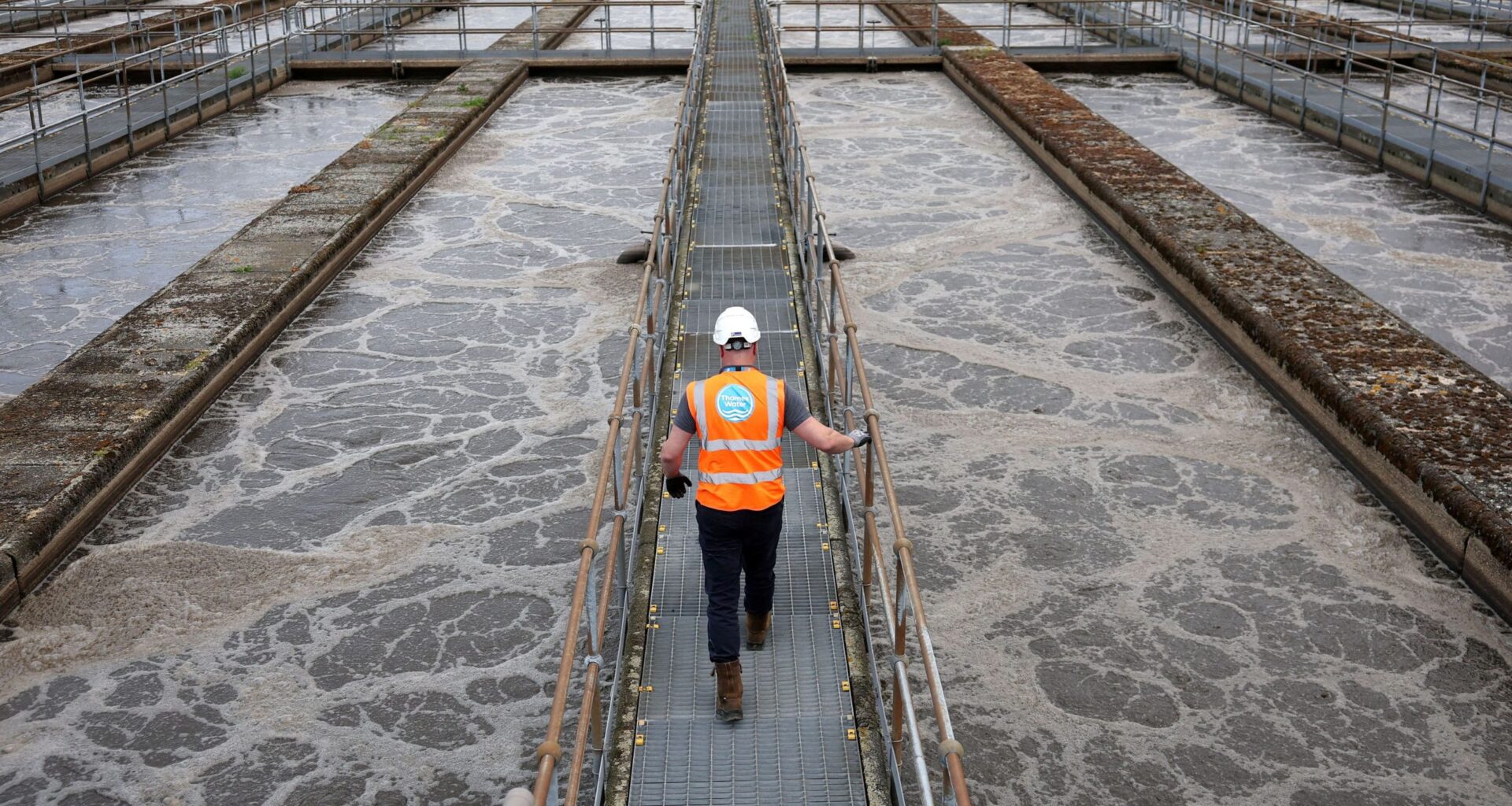On the calm shores of Gosport, an invisible danger lurks beneath seemingly tranquil waters. Residents have been warned to avoid any contact with the sea, as signs banning swimming have gone up following a sewage leak. The lakes at Haslar, Workhouse, Stoke, and Alverstoke Creek may look clean, but they are now considered hazardous. Water samples revealed dangerously high levels of ammonia — a sign of chronic pollution, according to local authorities.
This scene is just one of hundreds of similar incidents taking place across Britain every year, affecting both local communities and consumers. In 2024 alone, untreated sewage was released into England’s rivers and coastal areas for a staggering 3.61 million hours. Data from the Environment Agency shows that while the number of sewage discharge incidents by water companies dropped slightly, the average duration of each incident has increased. Though sewage discharge is not necessarily illegal, it is only allowed in exceptional cases — such as during heavy rainfall to prevent the system from overflowing.
A Collapsed Regulatory System
On Monday, the UK government announced a complete overhaul of its water sector regulatory framework in England and Wales. The plan includes abolishing Ofwat, the water services regulation authority, and replacing it with a unified and more powerful supervisory body. This new body will absorb the responsibilities of Ofwat, the Environment Agency, Natural England, and the Drinking Water Inspectorate. The aim is to simplify the fragmented oversight system and tackle pollution in rivers, lakes, and seas more effectively.
This initiative marks the first step in implementing five key recommendations — out of a total of 88 — proposed by the Independent Water Commission, chaired by Sir John Cunliffe. The Cunliffe report described the water sector as “broken,” citing serious management failures and mismanagement by water companies. It referred to the current crisis as a “modern Great Stink,” drawing a parallel with the 19th-century sanitation disaster that once plagued London.
The newly proposed regulator is expected to enhance transparency through measures such as a real-time sewage discharge map, which will automatically update and name the responsible companies, ending the practice of self-reporting. The goal is both environmental protection and the prevention of soaring costs for consumers.
“The decision to scrap Ofwat marks a turning point,” said Professor Kiran Tota-Maharaj, an expert in Water Resources and Infrastructure Management at the Royal Agricultural University. “It reflects a loss of public and political confidence in a murky and fragmented regulatory structure that has failed to prevent environmental degradation.” He added that a centralized regulator could lead to clearer oversight and better enforcement. However, he also warned of transitional uncertainty, the potential for regulatory capture, and investor reluctance if the new body lacks transparency or independence. “Although the reforms are ambitious, they do not address the ownership model that many believe lies at the heart of the water sector’s dysfunction. We must also acknowledge decades of underinvestment, £85 billion in shareholder payouts, and mounting debt,” Tota-Maharaj concluded.
Professor Hannah Cloke, a hydrologist at the University of Reading, stressed that while the reforms are “absolutely necessary,” time is of the essence. “We can’t spend years building new systems while our rivers remain polluted and reservoirs run dry. The real challenge isn’t designing better systems on paper — it’s forcing companies to fix leaks, stop dumping sewage, and build the infrastructure we actually need.”
A Political Fault Line
The government’s plan has quickly become a major topic of debate in Westminster. Labour MPs argue that the failure to properly regulate the water sector during the Conservatives’ 14-year rule was a key factor in their landslide election defeat in 2024.
The conversation has also turned to the legacy of Margaret Thatcher, who privatized England’s water industry in 1989. A similar attempt by John Major’s Conservative government in 1994 to privatize Scotland’s water system met fierce opposition and was ultimately abandoned.
Now in power, Labour is seeking to reverse the damage of recent months but is facing political pressure — especially from the far right and Nigel Farage, a staunch Thatcher supporter who left the Conservative Party after her removal. Farage’s Reform UK party, currently leading in the polls, promises to re-nationalize half of the water sector. Labour, however, is distancing itself from full-scale nationalization, citing the strained state of the UK’s public finances. In June alone, the public sector borrowed £20.7 billion — significantly more than analysts’ expectations of £17.6 billion.
Kemi Badenoch, leader of the Conservative Party, has taken a neutral stance on Labour’s plan while criticising Farage. “He wants to borrow more for nationalisation, more for handouts. Who’s going to pay for all that? Your children,” she remarked.
In contrast, Green Party MP Adrian Ramsay dismissed the proposed reforms as superficial: “Expecting a different regulatory model to fix the water industry is, frankly, like rearranging deckchairs on the Titanic. And what’s worse, the majority of the public will be left paying more, while the sector sinks under the weight of a failed privatization model.”
